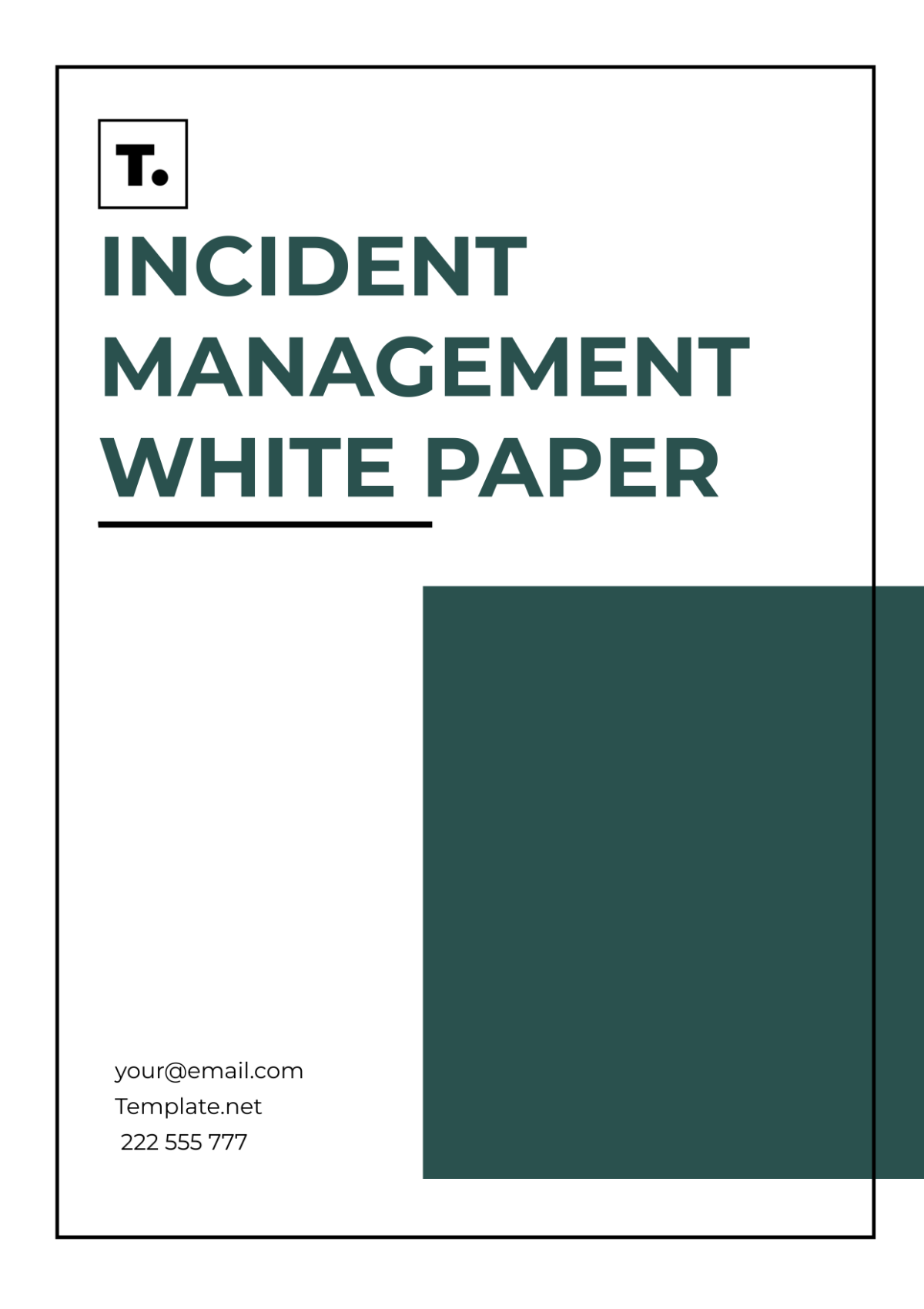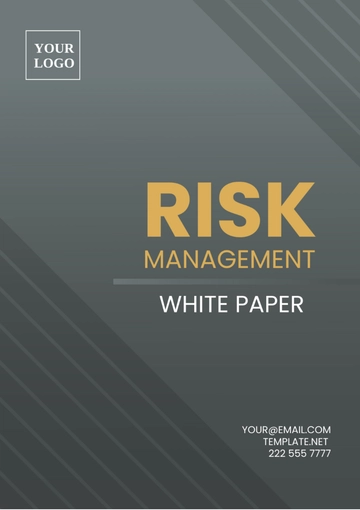Free Incident Management White Paper

Incident Management Strategies: A Comprehensive Guide
Author: [YOUR NAME]
Organization: [YOUR COMPANY NAME]
Department: [YOUR DEPARTMENT]
Date: [DATE]
I. Executive Summary
This white paper provides an in-depth analysis and strategic approach to incident management, focusing on detection, response, and recovery in various sectors. It serves as a critical resource for organizations aiming to enhance their incident management capabilities and minimize the impact of incidents. The insights and best practices discussed herein are derived from extensive research and contributions from industry experts at [YOUR COMPANY NAME].
II. Introduction
The necessity for robust incident management strategies has never been more critical. As organizations face an increasing variety of threats, from cyber-attacks to natural disasters, being well-prepared can significantly mitigate risks and ensure continuity. This document explores the fundamentals of incident management, the latest trends, and technological advancements in the field.
III. Understanding Incident Management
A. Definition of Incident Management
An incident is an event that could lead to loss of, or disruption to, an organization's operations, services, or functions. Incident management is the process used to respond to, document, and recover from such events. The goal is to handle the situation in a way that limits damage and reduces recovery time and costs.
B. Key Components
Detection and Reporting: This entails detecting potential incidents via different monitoring tools, and quickly reporting them to the relevant teams for further investigation.
Assessment and Decision Making: Evaluating detected incidents to assess their scope, impact, and priority, and deciding on appropriate response actions based on this assessment.
Response and Mitigation: Implementing actions to manage the incident involves deploying resources, activating response teams, and following predefined procedures to mitigate impact effectively.
Recovery and Post-Incident Review: Initiating recovery processes to normalize affected systems or services and conducting a post-incident review to enhance future response capabilities.
IV. Best Practices in Incident Management
Adopting industry best practices is crucial in enhancing an organization's incident management processes. This section covers the strategic actions essential for effective management of incidents.
Establish a Clear Incident Management Plan: Develop a documented strategy outlining how incidents will be identified, assessed, responded to, and resolved within the organization.
Develop and Train a Skilled Incident Response Team: Form a dedicated group of individuals trained to respond to incidents promptly and effectively, ensuring they possess the necessary technical and procedural knowledge.
Implement an Effective Communication Strategy: Establish protocols for internal and external communication during incidents, ensuring timely and accurate dissemination of information to relevant stakeholders.
Regularly Test and Update Incident Response Plans: Conduct exercises (such as simulations or tabletop drills) to evaluate the effectiveness of incident response plans and make necessary revisions based on lessons learned.
Utilize Technology for Enhanced Incident Detection and Analysis: Deploy tools and systems that can detect, analyze, and respond to incidents in real-time, enabling proactive identification and mitigation of potential threats.
V. Technological Innovations in Incident Management
Technology plays a pivotal role in modern incident management strategies. This section explores various technologies that enhance the capability of organizations to manage and respond to incidents efficiently.
Technology | Use Case | Benefits |
|---|---|---|
Incident Detection Systems | Monitoring and alerting | Real-time threat identification |
Automated Response Solutions | Immediate action on threats | Reduces human error and response time. |
Analytics and Reporting Tools | Post-incident analysis | Insights for future prevention and improvements |
VI. Case Studies
Exploring real-world applications and the effectiveness of incident management strategies provides practical insights and learning opportunities. Detailed case studies from sectors including healthcare, finance, and IT are discussed to illustrate best practices and lessons learned.
VII. Conclusion
This white paper has outlined the critical components and best practices for effective incident management. By integrating the strategies discussed, organizations can enhance their preparedness, response, and recovery capabilities, ultimately safeguarding their assets and reputation. For further information or to implement these strategies in your organization, please contact [YOUR EMAIL].
VIII. About the Author
[YOUR NAME] is a seasoned expert in risk management and incident response, with extensive experience in developing and implementing comprehensive incident management systems for various industry sectors at [YOUR COMPANY NAME].
- 100% Customizable, free editor
- Access 1 Million+ Templates, photo’s & graphics
- Download or share as a template
- Click and replace photos, graphics, text, backgrounds
- Resize, crop, AI write & more
- Access advanced editor
Discover the Incident Management White Paper Template on Template.net. This editable and customizable resource simplifies the creation of professional incident management documents. Effortlessly tailor content using our Ai Editor Tool to meet your specific needs. Enhance your incident response processes with this versatile template, ensuring clarity and efficiency in your documentation workflow. Streamline your incident management strategy today.





























